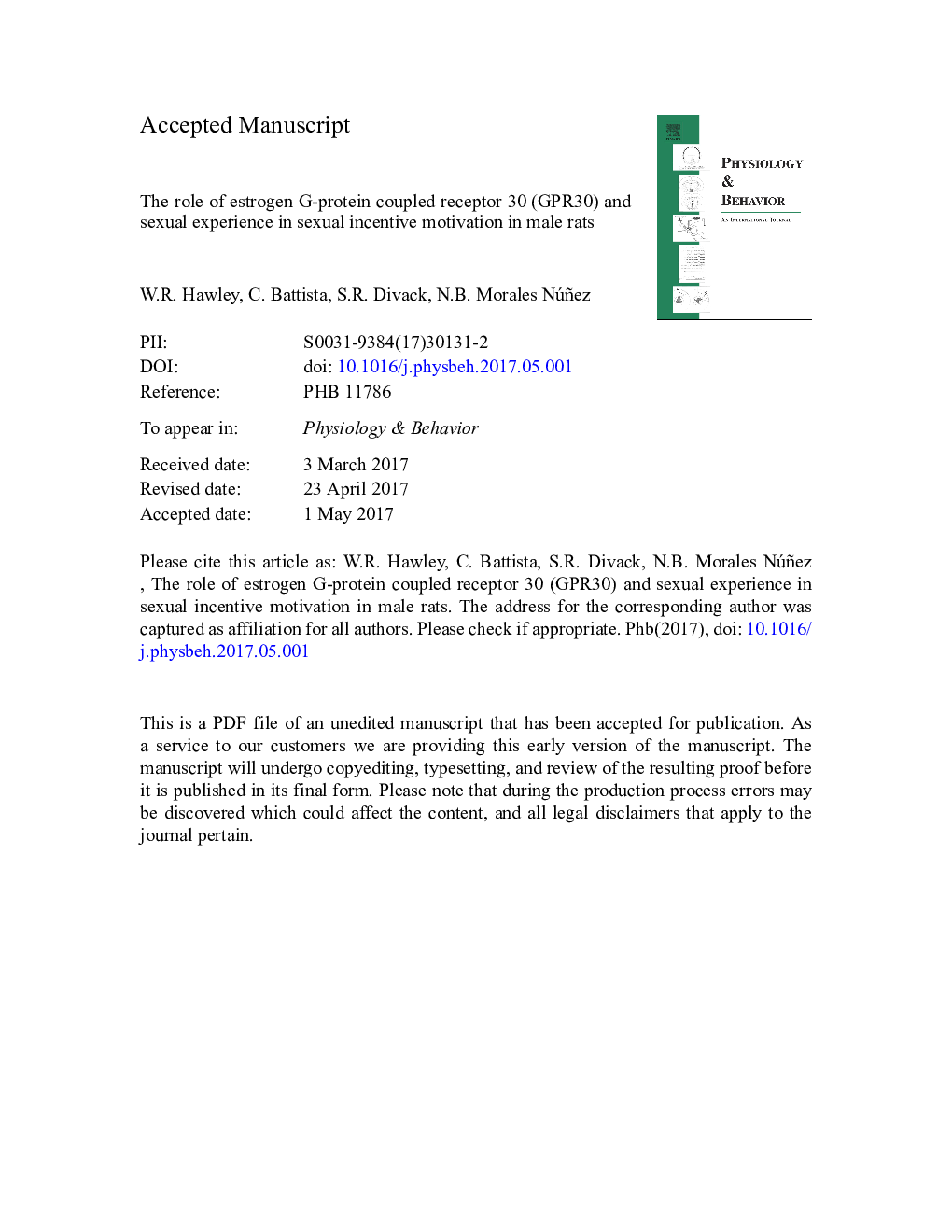| Article ID | Journal | Published Year | Pages | File Type |
|---|---|---|---|---|
| 5593739 | Physiology & Behavior | 2017 | 32 Pages |
Abstract
Male rats exhibit reductions in sexual motivation following systemic administration of drugs that inhibit the conversion of testosterone to estrogen, which indicates that estrogen signaling plays a role in male rat sexual motivation. Given that estrogen G-protein coupled receptor 30 (GPR30) is expressed in brain areas that are important for male sexual behaviors and endocrine function, the primary aim of the current study was to examine the role that GPR30 plays in sexual motivation in both sexually naïve and sexually experienced male rats. Following the final treatment with either a GPR30 antagonist (G-15) or vehicle control, male rats were placed into the center chamber of a larger three-chambered testing arena that was designed to assess sexual incentive motivation. A sexually receptive stimulus female rat and a stimulus male rat were individually confined to one of the two smaller chambers that were each separated by a perforated partition from the larger end chambers, which test rats had access to. Relative to vehicle treated rats, male rats treated with G-15 exhibited a reduction in the percentage of time spent in the vicinity of a sexually receptive female rat. Although G-15 reduced sexual incentive motivation independent of sexual experience, only sexually-naïve rats treated with G-15 did not exhibit a preference for the sexually receptive stimulus female rat. Collectively, these results indicate that interference with estrogen signaling at GPR30 reduces sexual motivation and that the lack of preference for a sexually receptive female rat over a male rat following G-15 treatment is abrogated by previous sexual experience.
Related Topics
Life Sciences
Biochemistry, Genetics and Molecular Biology
Physiology
Authors
W.R. Hawley, C. Battista, S.R. Divack, N.B. Morales Núñez,
